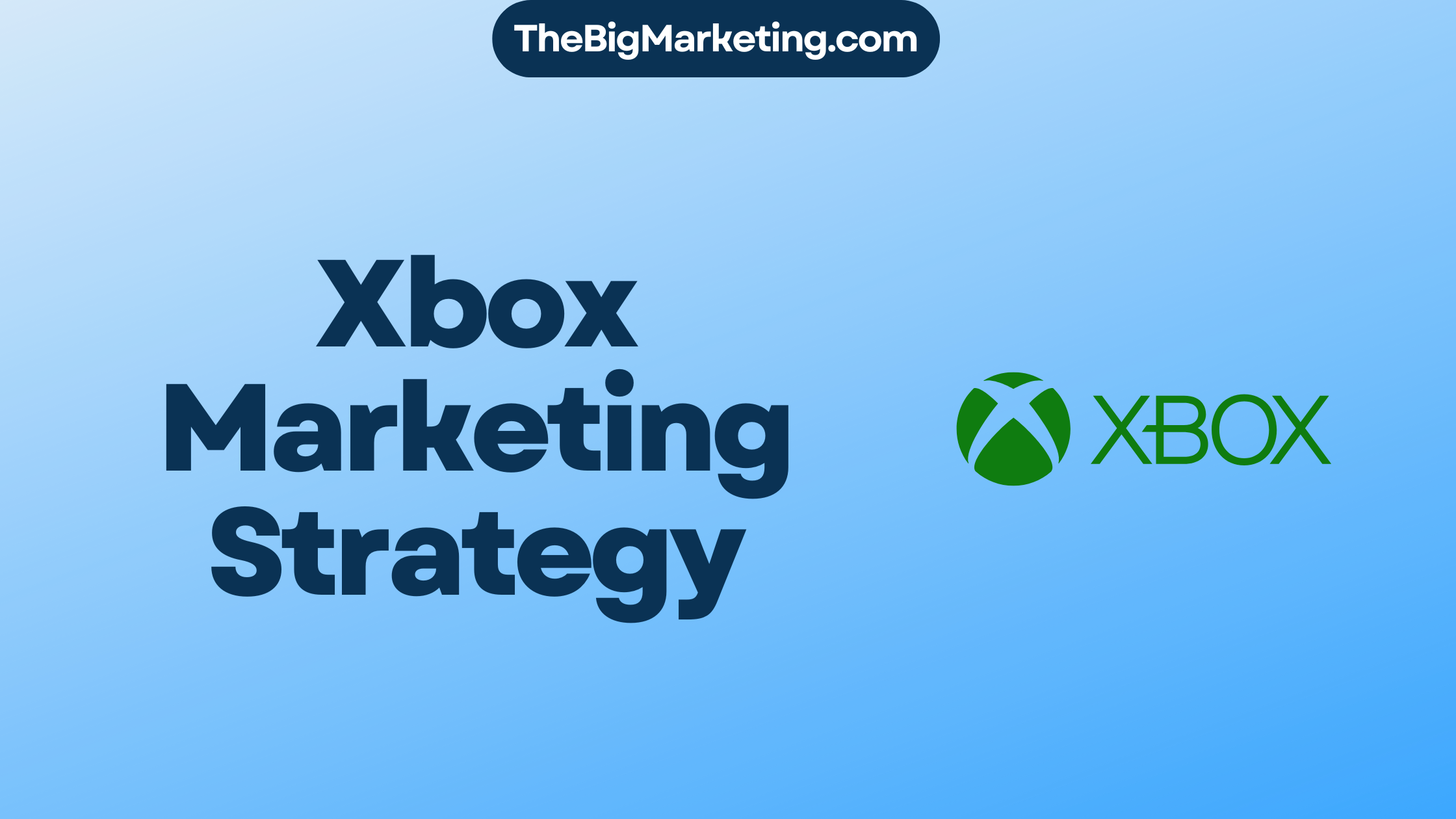Marketing plays a crucial role in the success of any business, and for entrepreneurs, it becomes even more vital. As a marketing entrepreneur, you are responsible for developing and implementing strategies to create and maintain demand, build brand awareness, and drive business growth. Online marketing and digital strategies are at the core of your efforts, as they allow you to reach a wider audience and maximize your business potential.
In this article, we will explore the concept of a marketing entrepreneur, the importance of marketing in entrepreneurship, and strategies for building brand awareness, generating leads and sales, creating a marketing strategy, utilizing digital marketing tools, measuring success, and adapting to changing market trends.
Key Takeaways:
- A marketing entrepreneur is responsible for developing and implementing strategies to drive business growth.
- Online marketing and digital strategies are essential for reaching a wider audience.
- Building brand awareness is crucial for entrepreneurial success.
- Generating leads and sales is a fundamental aspect of marketing for entrepreneurs.
- Creating a well-defined marketing strategy is essential for achieving business goals.
The Importance of Marketing in Entrepreneurship
Marketing plays a pivotal role in the success of entrepreneurial ventures. It drives business growth, enables brand awareness, and establishes a unique identity in the market. Effective marketing strategies are instrumental in helping marketing entrepreneurs reach their target audience, communicate value propositions, and build lasting relationships with their customers.
Without a solid marketing plan, businesses may struggle to compete against larger and more established companies, missing out on valuable growth opportunities. A well-executed marketing strategy empowers entrepreneurs to expand their market presence, increase sales, and achieve long-term success.
Let’s delve deeper into why marketing is crucial for entrepreneurship:
1. Business Growth
Marketing acts as a catalyst for business growth. By implementing effective marketing strategies, entrepreneurs can attract new customers, expand their customer base, and increase sales. Marketing facilitates product promotion, builds market share, and provides a platform for scaling operations. It helps entrepreneurial ventures thrive even in highly competitive markets and create sustainable growth.
2. Establishing Brand Identity
A strong and recognizable brand is essential for entrepreneurial success. Marketing enables entrepreneurs to establish their brand identity by effectively communicating their values, unique selling propositions, and differentiation from competitors. Through brand positioning, entrepreneurs can build brand equity, cultivate trust, and create a lasting impression on their target audience.
3. Target Audience Reach
Marketing allows entrepreneurs to identify and target their ideal audience. By conducting market research and utilizing customer segmentation strategies, entrepreneurs can tailor their marketing efforts to reach the right customers at the right time. Understanding customer needs, preferences, and behavior helps entrepreneurs maximize the impact of marketing campaigns and generate higher conversion rates.
4. Customer Relationship Building
Building strong and meaningful relationships with customers is paramount for entrepreneurial success. Marketing provides avenues for entrepreneurs to engage with their customers, gather feedback, and deliver personalized experiences. By utilizing customer relationship management strategies, entrepreneurs can nurture trust, loyalty, and advocacy, leading to repeat business and a competitive edge in the market.
5. Competitive Advantage
Marketing empowers entrepreneurs to differentiate themselves from competitors. By showcasing unique value propositions and effectively communicating product benefits, entrepreneurs can position their offerings as superior in the market. Through strategic marketing initiatives, entrepreneurs can create a sustainable competitive advantage and ensure long-term success.
The importance of marketing in entrepreneurship cannot be overstated. It is the core driver of business growth, enables brand establishment, facilitates target audience reach, fosters customer relationships, and secures a competitive advantage. To achieve marketing success, entrepreneurs must develop comprehensive marketing strategies, leverage digital tools, and adapt to evolving market trends.
| Benefits of Marketing in Entrepreneurship | |
|---|---|
| Business Growth | Establishing Brand Identity |
| Target Audience Reach | Customer Relationship Building |
| Competitive Advantage |
Building Brand Awareness
Building brand awareness is a critical aspect of entrepreneurial success. It involves creating awareness among potential customers about the brand’s products or services. This can be achieved through various marketing channels, including advertising, content marketing, social media, and public relations. The ultimate goal is to enhance recognition and familiarity with the brand, positioning it as the preferred choice when customers are seeking relevant products or services. Establishing a strong brand image plays a pivotal role in differentiating a business from its competitors and leaving a lasting impression on customers.
An effective advertising strategy is crucial for successful brand building. By leveraging advertising campaigns, entrepreneurs can reach a wider audience and increase exposure for their brand. Whether it’s through print media, television commercials, or online advertisements, strategic advertising efforts help create awareness and generate interest in the brand.
Content marketing is another powerful tool for building brand awareness. By creating valuable and informative content, entrepreneurs can position themselves as industry experts and thought leaders. This helps in gaining the trust and loyalty of potential customers, ultimately leading to increased brand awareness.
Social media platforms provide an excellent opportunity to connect with a larger audience and build brand awareness. Through engaging and shareable content, entrepreneurs can leverage the power of social media to create brand advocates and amplify their message. By actively participating in conversations and addressing customer queries and concerns, entrepreneurs can further strengthen their brand image.
Public relations (PR) plays a crucial role in building brand awareness. By securing media coverage, entrepreneurs can gain credibility and exposure for their brand. Collaborating with influencers, participating in events, and engaging in public relations efforts helps increase brand visibility and reach a wider audience.
To summarize, building brand awareness is a vital component of entrepreneurial success. By implementing a well-rounded marketing strategy that incorporates advertising, content marketing, social media, and public relations, entrepreneurs can establish a strong brand image and differentiate themselves in the market.
Generating Leads and Sales
Generating leads and sales is a fundamental aspect of marketing for entrepreneurs. It involves attracting potential customers and converting them into paying customers. This can be achieved through various strategies such as advertising, content marketing, email marketing, and social media.
Advertising: Entrepreneurs can leverage advertising channels to reach a wider audience and create awareness about their products or services. Whether it’s traditional print and TV ads or digital advertisements, targeted advertising campaigns help generate leads and drive sales.
Content Marketing: By creating valuable and relevant content, entrepreneurs can attract potential customers and establish thought leadership in their industry. Content marketing can take the form of blog posts, articles, videos, infographics, and more. It enables businesses to engage with their target audience, build trust, and ultimately convert leads into sales.
Email Marketing: Email marketing is an effective way to nurture leads and convert them into customers. Entrepreneurs can create personalized and targeted email campaigns to communicate offers, updates, and valuable content directly to potential customers. By creating compelling email content and optimizing email deliverability, entrepreneurs can increase their chances of generating leads and driving sales.
Social Media: Social media platforms provide an opportunity for entrepreneurs to engage with their target audience, build brand awareness, and drive sales. By sharing valuable content, running targeted social media ads, and actively interacting with followers, entrepreneurs can generate leads and convert them into paying customers.
In order to effectively generate leads and sales, entrepreneurs need to provide compelling offers and calls-to-action that encourage potential customers to take the desired action. Whether it’s a limited-time discount, a free trial, or a downloadable resource, the offer should incentivize potential customers to move forward in the buying process.
| Lead Generation Strategy | Advantages | Disadvantages |
|---|---|---|
| Advertising | Wide reach, targeted campaigns | Can be costly, limited control over audience engagement |
| Content Marketing | Establishes thought leadership, builds trust | Requires time and effort to produce high-quality content |
| Email Marketing | Direct communication, personalized campaigns | Potential for spam filters, opt-out rates |
| Social Media | Engagement, brand awareness | Constant monitoring and interaction required |
Creating a Marketing Strategy
Creating a well-defined marketing strategy is a critical step for marketing entrepreneurs seeking success. A marketing strategy serves as a roadmap that outlines how to reach the target audience, communicate the right message, and achieve business goals. To create an effective marketing strategy, marketing entrepreneurs need to consider key factors such as the target audience, market research, and success measurement.
Understanding the Target Audience
Understanding the target audience is the foundation of any marketing strategy. Marketing entrepreneurs must conduct thorough research to identify the demographic, psychographic, and behavioral characteristics of their target audience. By gaining a deep understanding of their customers’ needs, preferences, and pain points, entrepreneurs can tailor their marketing efforts to resonate with the target audience and increase the chances of success.
Conducting Market Research
Market research is essential for marketing entrepreneurs to gather valuable insights about their industry, competitors, and target market. By conducting surveys, analyzing industry reports, and studying customer behavior, entrepreneurs can identify market trends, anticipate potential challenges, and uncover new opportunities. Market research provides the necessary data to develop a well-informed marketing strategy that aligns with market conditions and consumer demands.
Defining a Unique Selling Proposition
A unique selling proposition (USP) is what sets a marketing entrepreneur’s product or service apart from competitors. It is the unique value proposition that appeals to the target audience and differentiates the business in the market. Defining a compelling USP is crucial for creating a marketing strategy that captures the attention of potential customers and convinces them to choose the entrepreneur’s offering over alternatives.
Developing a Comprehensive Plan
Based on the target audience, market research, and USP, marketing entrepreneurs can develop a comprehensive plan that encompasses various marketing tactics and channels. The plan should outline specific strategies for reaching the target audience, such as content marketing, social media marketing, email marketing, or influencer partnerships. It should also address the message that will communicate the USP effectively and engage potential customers.
Measuring Success
Measuring the success of a marketing strategy is vital for marketing entrepreneurs to evaluate its effectiveness and make data-driven decisions. Key performance indicators (KPIs) such as website traffic, lead generation, conversion rates, and customer engagement can provide valuable insights into the performance of the marketing efforts. By regularly measuring and analyzing these metrics, entrepreneurs can identify what strategies are working and make adjustments to optimize their marketing strategy for better results.
A well-crafted marketing strategy is a valuable asset for marketing entrepreneurs, guiding their efforts to reach the target audience, differentiate from competitors, and achieve business goals. By understanding the target audience, conducting market research, defining a unique selling proposition, and continually measuring success, marketing entrepreneurs can develop effective marketing strategies that drive growth and success in their ventures.
Utilizing Digital Marketing Tools
The digital age has revolutionized the way entrepreneurs approach marketing. Digital marketing has become an essential component of entrepreneurial success, allowing businesses to reach their target audience effectively and drive growth. By leveraging a range of online tools, marketing entrepreneurs can optimize their strategies, track their efforts, and make data-driven decisions. Let’s explore some of the key digital marketing tools that can empower entrepreneurs in their marketing endeavors.
Social Media Platforms
Social media platforms have emerged as powerful marketing tools, providing entrepreneurs with an effective way to connect with their audience, build brand awareness, and engage customers. Platforms like Facebook, Instagram, Twitter, and LinkedIn offer various advertising and promotional options that allow entrepreneurs to reach their target market with precision. With millions of active users, social media platforms provide ample opportunities for entrepreneurs to showcase their products or services and connect with potential customers, generating leads and driving sales.
Email Marketing Software
Email marketing software enables marketing entrepreneurs to communicate directly with their audience, nurturing leads and building customer relationships. By using tools like MailChimp, Constant Contact, or HubSpot, entrepreneurs can create personalized email campaigns, segment their audience, and track engagement metrics. Email marketing software offers features like automation, A/B testing, and analytics, providing valuable insights into customer behavior and campaign performance. This allows entrepreneurs to refine their email marketing strategy, optimize conversions, and drive revenue growth.
Analytics Tools
Data is the backbone of digital marketing, and analytics tools provide marketing entrepreneurs with the ability to measure and analyze key metrics. Google Analytics is a popular choice, offering comprehensive insights into website traffic, user behavior, and conversion rates. By monitoring these metrics, entrepreneurs can gauge the effectiveness of their marketing campaigns and make informed decisions to improve performance. Analytics tools also help identify trends, track ROI, and understand customer preferences, ensuring marketing efforts align with target audience needs.
| Benefits of Utilizing Digital Marketing Tools | Examples of Digital Marketing Tools |
|---|---|
|
|
Incorporating digital marketing tools into their strategies empowers marketing entrepreneurs to optimize their marketing efforts, reach their target audience, and achieve their business goals. By leveraging social media platforms, email marketing software, analytics tools, and other online resources, entrepreneurs can stay ahead of the competition and adapt to the ever-evolving digital landscape.
Measuring the Success of Marketing Efforts
Measuring the success of marketing efforts is a crucial aspect of entrepreneurial marketing. By evaluating the effectiveness of marketing activities and analyzing relevant metrics, marketing entrepreneurs can gain valuable insights into the performance of their strategies and make data-driven decisions to optimize future efforts.
Metrics provide tangible evidence of marketing impact and serve as benchmarks for success measurement. By tracking key performance indicators such as website traffic, lead generation, conversion rates, and customer engagement, marketing entrepreneurs can assess the effectiveness of their campaigns and gauge the return on investment (ROI).
Metrics for Success Measurement
To accurately gauge marketing success, marketing entrepreneurs should focus on the following metrics:
- Website traffic: Monitoring the number of visitors and their behavior on the website can help evaluate the effectiveness of marketing efforts in attracting and engaging the target audience.
- Lead generation: Tracking the number of leads generated through various marketing channels provides insights into the effectiveness of lead generation strategies and helps identify areas for improvement.
- Conversion rates: Analyzing the percentage of leads or visitors that convert into customers allows marketing entrepreneurs to assess the impact of their campaigns on driving sales.
- Customer engagement: Measuring metrics such as customer feedback, social media interactions, and email open rates helps evaluate the level of customer engagement and the effectiveness of marketing communication.
Data Analysis and Optimization
Once the relevant metrics have been collected, marketing entrepreneurs can leverage data analysis techniques to derive actionable insights and optimize their marketing strategies. By identifying patterns, trends, and correlations in the data, entrepreneurs can gain a comprehensive understanding of their target audience’s preferences and behaviors.
Data analysis can help marketing entrepreneurs:
- Identify marketing channels that yield the highest ROI and allocate resources accordingly.
- Optimize messaging and content to better resonate with the target audience.
- Identify areas for improvement in the customer journey and enhance the overall customer experience.
By continuously monitoring and analyzing marketing metrics, marketing entrepreneurs can refine their strategies, improve their marketing performance, and drive sustainable business growth.
| Metric | Description |
|---|---|
| Website Traffic | The number of visitors to the website, measured in unique visits or page views. |
| Lead Generation | The number of leads generated through marketing activities, indicating the effectiveness of lead generation strategies. |
| Conversion Rates | The percentage of leads or visitors that convert into customers, measuring the effectiveness of marketing campaigns in driving sales. |
| Customer Engagement | Metrics such as customer feedback, social media interactions, and email open rates that indicate the level of customer engagement and the effectiveness of marketing communication. |
Adapting to Changing Market Trends
Adapting to changing market trends is crucial for marketing entrepreneurs to stay ahead of the curve and achieve long-term success. In today’s fast-paced business landscape, market trends can shift rapidly, presenting both opportunities and challenges for entrepreneurs. To effectively navigate these changes, marketing entrepreneurs must remain adaptable and flexible in their approach.
One key aspect of adapting to market trends is staying updated on industry developments. By keeping a pulse on the latest innovations, emerging technologies, and shifts in consumer behavior, entrepreneurs can proactively adjust their marketing strategies to meet evolving customer needs and preferences.
Digital marketing plays a significant role in responding to changing market trends. With the increasing reliance on online channels for information and shopping, entrepreneurs need to leverage digital marketing tools to effectively reach their target audience. By embracing digital marketing strategies such as search engine optimization, social media advertising, and content marketing, entrepreneurs can capitalize on the growing digital landscape.
Benefits of Adapting Marketing Approaches
Being flexible in marketing approaches allows entrepreneurs to quickly identify and seize new market opportunities. By pivoting their strategies to align with emerging trends, marketing entrepreneurs can gain a competitive edge and establish themselves as industry leaders. Furthermore, adapting marketing approaches allows entrepreneurs to optimize their marketing efforts and allocate resources where they will be the most effective.
Adaptability and flexibility in marketing also enable entrepreneurs to build and maintain strong customer relationships. By understanding and responding to evolving customer needs, entrepreneurs can deliver personalized and relevant marketing messages. This fosters customer loyalty and enhances the overall customer experience, contributing to long-term business growth.
Overall, marketing entrepreneurs must prioritize adaptability and flexibility to effectively navigate changing market trends. By staying informed, embracing digital marketing strategies, and continuously adjusting their marketing approaches, entrepreneurs can position themselves for success in a dynamic business landscape.
Conclusion
Marketing plays a crucial role in the success of entrepreneurial ventures. It enables businesses to grow, stand out in competitive markets, and effectively reach their target audience. With innovative strategies, risk-taking, and proactive approaches, entrepreneurs can maximize limited resources and differentiate themselves from competitors.
Creating a well-defined marketing strategy is essential for driving business success. It involves conducting market research, understanding the target audience, and developing a unique selling proposition. By building brand awareness, generating leads and sales, and utilizing digital marketing tools, entrepreneurs can establish a strong presence in the market.
Adapting to changing market trends is vital for entrepreneurial marketing success. Staying flexible and responsive to industry shifts, customer preferences, and evolving technologies is key. By prioritizing marketing as a core element of their business strategy, entrepreneurs can achieve long-term success and maintain a competitive edge in today’s dynamic business landscape.
In conclusion, entrepreneurial marketing requires strategic thinking, continuous learning, and a commitment to staying ahead of the curve. By leveraging marketing strategies such as market research, branding, lead generation, and digital tools, entrepreneurs can position their businesses for growth, foster customer relationships, and achieve their business goals.
FAQ
What is a Marketing Entrepreneur?
A marketing entrepreneur is an individual who combines their entrepreneurial skills with marketing knowledge to start and grow a successful business. They utilize online marketing, digital marketing, and business development strategies to create and maintain a competitive advantage.
Why is marketing important in entrepreneurship?
Marketing is vital in entrepreneurship as it contributes to business growth, establishes a unique identity in the market, and generates leads and sales. It helps entrepreneurs reach their target audience, build brand awareness, and communicate value to customers, setting the foundation for business success.
How can I build brand awareness as a marketing entrepreneur?
Building brand awareness involves utilizing various marketing channels such as advertising, content marketing, social media, and public relations. By consistently promoting your brand, products, or services through these channels, you can increase recognition and familiarity, differentiate your business from competitors, and create a strong brand image.
What are some strategies to generate leads and sales as a marketing entrepreneur?
To generate leads and sales, you can employ strategies such as advertising, content marketing, email marketing, and social media. By offering compelling solutions, using effective calls-to-action, and consistently promoting your products or services through the right channels, you can attract potential customers and convert them into paying customers.
How can I create a marketing strategy as a marketing entrepreneur?
Creating a marketing strategy involves understanding your target audience, conducting market research, and defining a unique selling proposition. Based on this information, you can develop a comprehensive plan to reach your target audience, communicate the right message, and measure success. Regularly reviewing and adjusting your strategy is essential to adapt to changes and optimize results.
What digital marketing tools can I utilize as a marketing entrepreneur?
As a marketing entrepreneur, you can leverage digital marketing tools such as social media platforms, email marketing software, and analytics tools. These help you reach your target audience, track marketing efforts, and make data-driven decisions. It is important to choose the right tools for your business and regularly evaluate their effectiveness to achieve your marketing goals.
How can I measure the success of my marketing efforts as a marketing entrepreneur?
Measuring the success of your marketing efforts involves evaluating metrics such as website traffic, lead generation, conversion rates, and customer engagement. By analyzing these metrics, you can make data-driven decisions to optimize your marketing strategy and improve overall performance. Regularly monitoring these metrics is essential to ensure the effectiveness of your marketing campaigns.
How can I adapt to changing market trends as a marketing entrepreneur?
Adapting to changing market trends requires staying updated on industry trends, understanding customer needs and preferences, and being proactive in adjusting your marketing strategies. Digital marketing plays a significant role in responding to changes, as more people turn to online channels for information and shopping. Remaining flexible and adapting your marketing approaches will help you remain competitive and achieve long-term success.
How does marketing contribute to entrepreneurial success?
Marketing is a vital component of entrepreneurship, helping businesses grow, differentiate themselves, and succeed in competitive markets. By prioritizing marketing as a key element of the overall business strategy, employing innovative strategies, taking risks, and being proactive, entrepreneurs can effectively reach their target audience and achieve their business goals.







